Definition
Schizophrenia is a serious disorder which affects how a person thinks, feels and acts. Someone with schizophrenia may have difficulty distinguishing between what is real and what is imaginary; may be unresponsive or withdrawn; and may have difficulty expressing normal emotions in social situations.
History
The word schizophrenia was coined by the Swiss psychiatrist and eugenicist Eugen Bleuler in 1908, and was intended to describe the separation of function between personality, thinking, memory, and perception. He formally introduced the term on 24 April 1908 in a lecture given at a psychiatric conference in Berlin and in a publication that same year. Bleuler later expanded his new disease concept into a monograph in 1911, which was finally translated into English in 1950.
The history of ‘schizophrenia’ is complex and not easy to characterize in a linear historical narrative, although attempts continue to be made. According to some, the disease has always existed only to be ‘discovered’ during the early 20th century. The plausibility of this claim depends upon the success of retrospectively diagnosing earlier cases of madness as ‘schizophrenia’. According to others, ‘schizophrenia’ names a culturally determined clustering of mental symptoms. What is known for sure is that by the turn of the 20th century the old concept of insanity had become fragmented into ‘diseases’ (psychoses) such as paranoia, dementia praecox, manic-depressive insanity and epilepsy (Emil Kraepelin’s classification). Dementia praecox was reconstituted as schizophrenia, paranoia was renamed as ‘delusional disorder’ and manic-depressive insanity as ‘bipolar disorder’ (epilepsy was transferred from psychiatry to neurology). It is important to emphasize that the ‘mental symptoms’ included under the concept schizophrenia are real enough, make people suffer, and will always need understanding and treatment. However, whether the historical construct currently called ‘schizophrenia’ is required to achieve this therapeutic goal remains contentious.
Epidemiology
The median lifetime morbid risk for schizophrenia is 7.2 per 1000 people. The male-to-female risk ratio is 1.4:1. A connection may exist between later onset in females and higher pre-morbid functioning. It appears that the incidence and prevalence of schizophrenia vary depending on race and geographic location. Patients with schizophrenia have a higher mortality than the general population due to medical illness, accidents, and suicide.
The age of onset is usually <25 years for males and <35 years for females. More affected people have been born in the winter versus the spring or summer seasons, but these data are controversial. Additionally, a higher disease incidence has been reported in urban and low-income populations when compared with rural and higher-income groups. The incidence and prevalence appears to increase over time. There is a reported higher incidence in migrant populations, which appears to persist into the second generation. While the prevalence of psychotic disorders in the 10- to 18-year-old age group is relatively low at around 0.4%, the prevalence of schizophrenia in 10- to 18-year-olds hospitalised for psychiatric causes is 25%, with an exponential increase over the adolescent years.
Types of Schizophrenia
Paranoid type schizophrenia: Typically consists of false beliefs and hearing things that aren’t there; may be more manageable than other types of schizophrenia (more on paranoid schizophrenia)
Disorganized type schizophrenia: Typically consists of thoughts, speech and behavior that is inappropriate and incomprehensible
Catatonic type schizophrenia: Consists of activity levels on either end of the spectrum; either a dazed, coma-like state or a hyperactive state
Undifferentiated type schizophrenia: A form of schizophrenia that does not match any of the above types; sometimes this is called schizophrenia not otherwise specified
Residual type schizophrenia: Consists of some schizophrenic symptoms of lesser severity
Risk factors
Although the precise cause of schizophrenia isn’t known, certain factors seem to increase the risk of developing or triggering schizophrenia, including:
- Having a family history of schizophrenia
- Increased immune system activation, such as from inflammation or autoimmune diseases
- Older age of the father
- Some pregnancy and birth complications, such as malnutrition or exposure to toxins or viruses that may impact brain development
- Taking mind-altering (psychoactive or psychotropic) drugs during teen years and young adulthood
Causes of Schizophrenia
The cause of schizophrenia is still unclear. Some theories about the cause of this disease include: genetics (heredity), biology (abnormalities in the brain’s chemistry or structure); and/or possible viral infections and immune disorders.
Genetics (Heredity)
Scientists recognize that the disorder tends to run in families and that a person inherits a tendency to develop the disease. Similar to some other genetically-related illnesses, schizophrenia may appear when the body undergoes hormonal and physical changes (like those that occur during puberty in the teen and young adult years) or after dealing with highly stressful situations.
Biology
Chemistry – Scientists believe that people with schizophrenia have an imbalance of the brain chemicals or neurotransmitters: dopamine, glutamate and serotonin. These neurotransmitters allow nerve cells in the brain to send messages to each other. The imbalance of these chemicals affects the way a person’s brain reacts to stimuli–which explains why a person with schizophrenia may be overwhelmed by sensory information (loud music or bright lights) which other people can easily handle. This problem in processing different sounds, sights, smells and tastes can also lead to hallucinations or delusions.
Structure
Some research suggests that problems with the development of connections and pathways in the brain while in the womb may later lead to schizophrenia.
Viral Infections and Immune Disorders
Schizophrenia may also be triggered by environmental events, such as viral infections or immune disorders. For instance, babies whose mothers get the flu while they are pregnant are at higher risk of developing schizophrenia later in life. People who are hospitalized for severe infections are also at higher risk.
Symptoms
A medical or mental health professional may use the following terms when discussing the symptoms of schizophrenia.
Positive symptoms are disturbances that are “added” to the person’s personality.
Delusions: False ideas- individuals may believe that someone is spying on him or her, or that they are someone famous (or a religious figure).
Hallucinations: Seeing, feeling, tasting, hearing or smelling something that doesn’t really exist. The most common experience is hearing imaginary voices that give commands or comments to the individual.
Disordered thinking and speech: Moving from one topic to another, in a nonsensical fashion. Individuals may also make up their own words or sounds, rhyme in a way that doesn’t make sense, or repeat words and ideas.
Disorganized behaviour: This can range from having problems with routine behaviors like hygiene or chosing appropriate clothing for the weather, to unprovoked outbursts, to impulsive and uninhibited actions. A person may also have movements that seem anxious, agitated, tense or constant without any apparent reason.
Negative symptoms are capabilities that are “lost” from the person’s personality.
- Social withdrawal
- Extreme apathy (lack of interest or enthusiasm)
- Lack of drive or initiative
- Emotional flatness
Complications of Schizophrenia
Left untreated, schizophrenia can result in severe problems that affect every area of life. Complications that schizophrenia may cause or be associated with include:
- Suicide, suicide attempts and thoughts of suicide
- Self-injury
- Anxiety disorders and obsessive-compulsive disorder (OCD)
- Depression
- Abuse of alcohol or other drugs, including tobacco
- Inability to work or attend school
- Legal and financial problems and homelessness
- Social isolation
- Health and medical problems
- Being victimized
- Aggressive behavior, although it’s uncommon
Diagnosis and test
Diagnosis of schizophrenia involves ruling out other mental health disorders and determining that symptoms are not due to substance abuse, medication or a medical condition. Determining a diagnosis of schizophrenia may include:
Physical exam: This may be done to help rule out other problems that could be causing symptoms and to check for any related complications.
Tests and screenings: These may include tests that help rule out conditions with similar symptoms, and screening for alcohol and drugs. The doctor may also request imaging studies, such as an MRI or CT scan.
Psychiatric evaluation: A doctor or mental health professional checks mental status by observing appearance and demeanour and asking about thoughts, moods, delusions, hallucinations, substance use, and potential for violence or suicide. This also includes a discussion of family and personal history.
Diagnostic criteria for schizophrenia: A doctor or mental health professional may use the criteria in the Diagnostic and Statistical Manual of Mental Disorders (DSM-5), published by the American Psychiatric Association.
Treatment and medications
Medications
- Your doctor may offer you medication known as an ‘antipsychotic’. These reduce the symptoms of schizophrenia, but do not cure the illness. Your healthcare professionals should work with you to help choose a medication. If you want, your carer can also help you make the decision. Doctors should explain the benefits and side effects of each drug.
- In the past, antipsychotics had negative side effects. Some people find that the side effects of newer antipsychotic drugs are easier to manage.
- If you have been on an antipsychotic for a few weeks and the side effects are too difficult to cope with, you should ask your doctor about trying a different one. NICE state that people who have not responded to at least 2 other antipsychotic drugs should be offered clozapine.
- Your medication should be reviewed at least once a year.
Psychosocial treatments
Your doctor should offer you psychosocial treatments. These treatments help you to look at how your thoughts and behaviour are influenced by the people and society you live in. This can include the following:
Talking treatments: NICE says the NHS should offer cognitive behavioural therapy (CBT) to all adults with psychosis or schizophrenia. CBT can help you to manage your feelings and symptoms better. CBT does not get rid of your symptoms.
Psycho-education: This involves learning about your illness, your treatment and how to spot early signs of becoming unwell again. It can prevent you having a full-blown episode. Psycho-education may also be helpful for anyone who is supporting you, such as family, a partner or a trusted colleague.
Arts therapies: This can help to reduce the negative symptoms of the illness. It can help you to express yourself more creatively.
Family therapy: NICE recommend family members of people with psychosis and schizophrenia should be offered family therapy. This can help to improve how you feel about family relationships. This can help reduce any problems in the family caused by your symptoms.
Prevention of Schizophrenia
- Similarly to the screening for schizophrenia, prevention of the disease poses a challenge because we are not able to accurately determine which individuals are most likely to be affected.
- Substance abuse is strongly linked to schizophrenia with regular drug users more likely to suffer from the condition and a high percentage of schizophrenic patients have a history of drug abuse. For this reason, the avoidance of drugs such as cannabis, cocaine and amphetamines is recommended in the prevention of schizophrenia.
- Social support is also very important for individuals to manage stressful life events and prevent triggers for the initiation of schizophrenia from occurring. Where possible, people at risk should have a network they can trust to talk through any issues with and avoid isolation.
 Diseases Treatments Dictionary This is complete solution to read all diseases treatments Which covers Prevention, Causes, Symptoms, Medical Terms, Drugs, Prescription, Natural Remedies with cures and Treatments. Most of the common diseases were listed in names, split with categories.
Diseases Treatments Dictionary This is complete solution to read all diseases treatments Which covers Prevention, Causes, Symptoms, Medical Terms, Drugs, Prescription, Natural Remedies with cures and Treatments. Most of the common diseases were listed in names, split with categories.

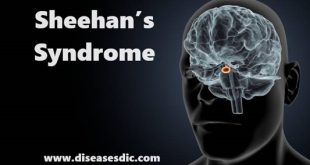
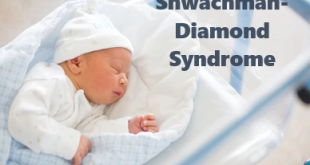

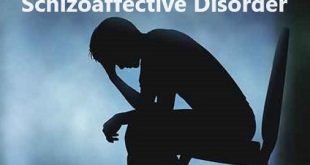
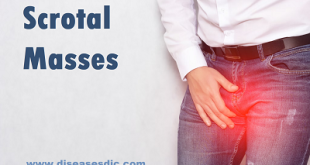
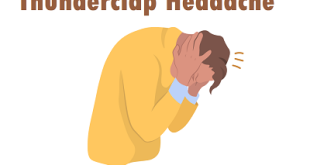

if someone only listern voices and behave differently after certain time period (5-10 days) then what should one do
if one only listen only voice and behave in different ways after certain time nearly 5-7 days
By taking the only tablet clozopine is this disorder is cure….. why we not intake other tablets like prozac… it’s lead to brain surgery.. or it just cure by familiar psychiatrist
my mother is also suffering from siz…. after taking medicines also she is that much cured. she still talk herself and sees other person who exactly is not there .what should be done to reduce such symptoms. hope to get better answer
Consult a doctor. Do rehabilitation to your mother in order to get recovered from Schizophrenia.
A treatment was carried out on me three years ago and since then I have not being my original self again. I was miss diagnosed by my Nigerian doctor. I am struggling mentally now. something I don’t experience before. please I need solution and quick intervention. your response is highly welcomed